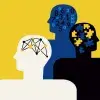Technological advances in the context of a changing world such as artificial intelligence and automation are reasons why people should embrace lifelong learning to prevent their skills from becoming obsolete.
This was one of the observations shared by lifelong learning professionals during their participation in the 9th International Conference on Educational Innovation (CIIE) from Tec de Monterrey’s Institute for the Future of Education (IFE).
Specialists such as Michael Fung, Director of the IFE; Stephen Harmon, Executive Director of the Center for 21st Century Universities; and Vianey Valenzuela, Director of Innovation and The Learning Gate at the Tec, shared their vision of Lifelong Learning.
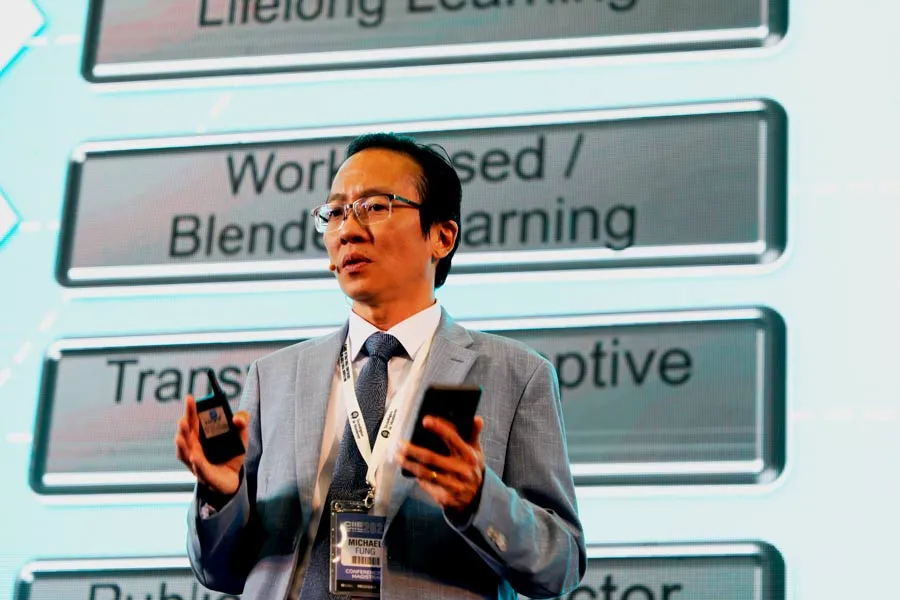
Continuous learning for a changing world
During his talk, Transforming Higher Education & Lifelong Learning, Michael Fung invited attendees to reflect on how advances in medical science have extended people’s life expectancies while extending the time they need to work.
“We need to work longer. It’s about having multiple phases of life and work in different jobs, different careers throughout our lives,” he said.
He added that new technologies have also led to the disappearance of many jobs, and new ones have been created in their place.
“The World Economic Forum has predicted that 85 million jobs will be lost to automation by 2025; McKinsey has predicted that some 375 million jobs will be affected by some form of automation and use of technologies,” Fung said.
He noted that global events such as the COVID-19 pandemic, geopolitical movements, and trade tensions have also reconfigured supply chains and industries, making it necessary for people to develop new skills and capabilities.
“Some capabilities and skills in the workforce are becoming obsolete and new ones need to be developed for people to remain employable and companies to be competitive.
“It’s clear that as we live longer and deal with these changes, we need to continue to have an attitude and a disposition to continue learning and acquiring new skills,” he added.
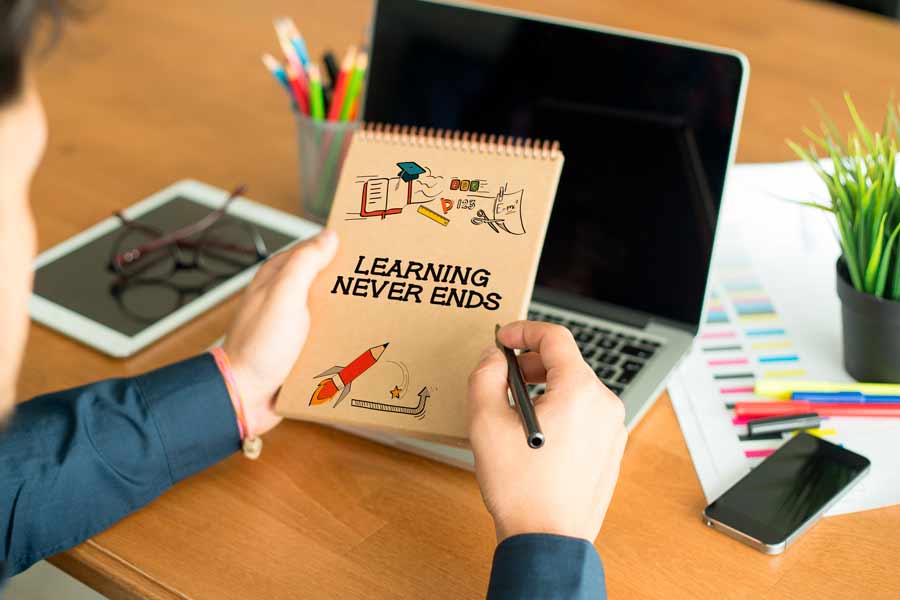
The risks of not paying attention to lifelong learning
During the opening keynote at CIIE 2023, Fung posed the question, “What would happen if we did nothing and if we didn’t bother to update our skills?”
“I would like you to imagine a scenario in which we did nothing about all these changes that are coming and continued with our current policies, practices, and mindsets. What would happen if we continued to teach the same curriculum in educational institutions?
“What would happen is that industries and companies would lose their competitive edge, they wouldn’t have the ability to transform themselves and take advantage of new business opportunities. As a person, you would be less and less employable because you wouldn’t have the new skills needed,” he said.
To prevent these gaps, the IFE director believes it is essential to update the ways we educate people and generate lifelong learning opportunities that allow them to refresh their skills for a changing labor market.
“We need to find ways to provide convenient, relevant, and quality learning opportunities for the entire workforce,” he pointed out.
How to consolidate a lifelong learning system
In order for people to stay current, Fung sees it necessary to make paradigm shifts in education, such as new academic tracks that are multiple and modular and educational models with lifelong learning approaches.
He also spoke of offering labor market-based blended learning with industry and business as training partners, emphasizing the development of cross-cutting adaptive skills, and generating greater collaboration between the public and private sectors.
“We need to make these paradigm shifts in order to achieve a well-functioning lifelong learning system,” the director noted.
He said that in order to make these paradigm shifts a reality, it is also important to visualize some components at the ecosystem level, such as:
- The ability to develop real-time forecasts of competencies and skills that will be needed in the future.
- Mapping those skills onto flexible learning pathways, with programs, courses, and MOOCs for people to progress as they need to.
- Creating a way of providing training programs aligned with forecasted skills needs, such as skills markets where demand and supply can come together.
- Developing the ability to assess and certify knowledge and skills, e.g., through micro-credentials.
- Taking into account people’s educational journeys from learning to employment.
- Constant feedback and monitoring.
Acquisition of skills for transforming work roles
Stephen Harmon urged universities to think about how to deal with the impact of automation and new technologies on the workforce during his talk, entitled Innovation for Access in Lifelong Learning: A Changing Role for Higher Education.
“We can create job profiles for the different careers that might exist and try to figure out how to best serve our students,” Harmon said.
Harmon, who is also Associate Dean of Research at Georgia Tech Professional Education (GTPE), suggested doing a career analysis and mapping other career pathways onto skills acquisition.
“For example, accountants might find their fields completely automated, but we can look at the skills they have and say, ‘Well, you know your skills are about 80% of what a cybersecurity expert has.’
“Then we can help that person go from being an accountant, a fading field, to a cybersecurity expert in a growing field,” the professor said.
“We can create job profiles for the different careers that might exist and try to figure out how to best serve students.” - Stephen Harmon
At CIIE, Harmon shared some of the tools implemented at GTPE through a Literature program in which students can design their programs and customize the types and fields of study they learn in.
He added that these tools are part of an investigation in which teachers also obtain indicators on the progress of students and their skills, which are reflected in credentials that employers and universities can validate.
“We have to make sure that whatever we do is based on truly fundamental research evidence,” he added.
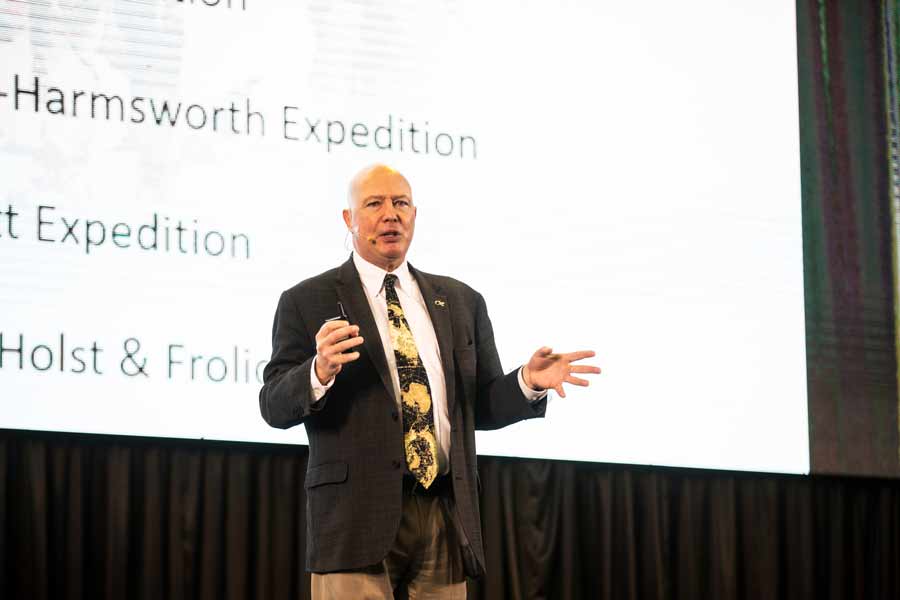
Options for continuing learning
During her talk, Vianey Valenzuela, Director of Innovation and The Learning Gate at the Tec, identified some trends in Lifelong Learning that exist in the market, including the following:
- Upskilling & Reskilling
- On-demand services
- Creation of communities
- Adaptive learning
- Competency-based learning
- Micro Learning
- Challenge-based learning
The Director of The Learning Gate initiative pointed out that on-demand services are a constant in different areas of our lives today, so it is important that this trend is also reflected in education.
“As consumers, we’re used to choosing what we want when we want it, including where and how much it costs. Consumers have the power to choose at a click or a swipe on their cell phone,” said Valenzuela.
She also pointed out that today’s lifelong learning should also have elements of community, in which learners can access an ecosystem with experts and future employers.
In terms of adaptive learning, she mentioned the use of technological tools with artificial intelligence in which data can be used to provide the format that users need to learn better, solve problems, or acquire skills.
She said that it has been a struggle for Lifelong Learning to implement content in Micro Learning formats with encapsulated and packaged formats that get people hooked, while providing quick and short solutions.
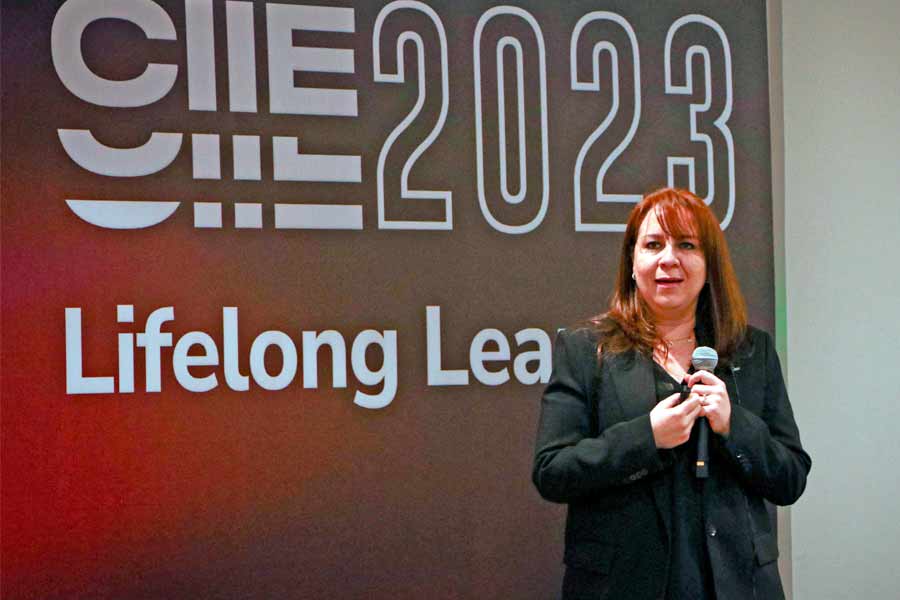
The Learning Gate and on-demand education
In her talk, On-Demand Learning: Just What You Need, When You Need It, In an Easy, Fast, and Flexible Way, Vianey Valenzuela pointed out the different educational trends the Tec had presented about a year ago in the learning ecosystem called The Learning Gate.
The director pointed out that unlike traditional programs, this one provides people with transformative on-demand learning, in which users can access courses by modules, in an online self-directed format, and complete a proficiency evaluation.
She explained that participants can choose where to start learning by competencies, with challenges that are applicable to their work, and with evaluation and feedback from experts. In addition, as people advance in their learning, they can obtain badges, diplomas, and certifications.
“You have the support of feedback from someone who truly knows, the support of Tec de Monterrey with professors and experts providing feedback on how you apply your learning to your work environment,” she added.
“We need to find ways to provide convenient, relevant, and quality learning opportunities for the entire workforce.” - Michael Fung.
Jorge Blando, the Tec’s Vice Rector for Continuing Education, pointed out that today’s universities, companies, organizations, and technology platforms need to focus on ensuring that no one falls behind in terms of learning.
“Let’s reflect on how we can ensure that no one in our company, our society, and our country is left without the option of continuing to learn and continuing to grow because learning gives you dignity, and that dignity allows you to flourish,” Blando said.
International Conference on Educational Innovation (CIIE)
The 9th International Conference on Educational Innovation (CIIE), organized by Tec de Monterrey’s Institute for the Future of Education, is a space for sharing the trends and practices that are revolutionizing the world of education.
“CIIE is an invaluable opportunity to reflect on the value of educational innovation in the development of nations,” said José Escamilla, Associate Director of Tec de Monterrey’s Institute for the Future of Education and chairman of the organizing committee.
Since 2006, it has helped innovative people improve education, making an impact on about 2 million people in 40 countries.
ALSO READ:





